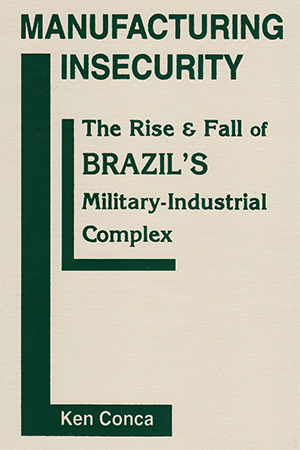
- 1997/283 pages
Manufacturing Insecurity:
The Rise and Fall of Brazil's Military-Industrial Complex
Manufacturing Insecurity provides a sobering analysis of an extraordinary boom and bust story: Nurtured by military rule and expanding international markets, Brazil's defense sector emerged as a Third World leader in the late 1970s and early 1980s. Within a decade, a country that had been almost totally dependent on outside suppliers became a significant manufacturer for the global market in armored vehicles, military aircraft, naval craft, and short–and medium–range missiles. But by the early 1990s, many important firms were bankrupt, military R&D was virtually halted, and arms exports had slowed to a trickle. Ambitious plans to make Brazil the first Third World producer of advanced weapons systems were abandoned. The defense sector lay in ruins.
Conca explores the spectacular growth and decline of Brazil's military-industrial complex and creates a conceptual framework for analyzing Third World industrialization, emphasizing the interplay of world markets and domestic politics. Using case studies of four weapons programs, he chronicles the increasing mismatch between the political needs of the Brazilian military on the domestic front and the demands of the global economy. He demonstrates how failed adaptations to changing international markets produced in Brazil a pattern of instability, chaos, and institutional disintegration, which continues to the present day.







